
Spring 2025 End of the Year - Happy Hour
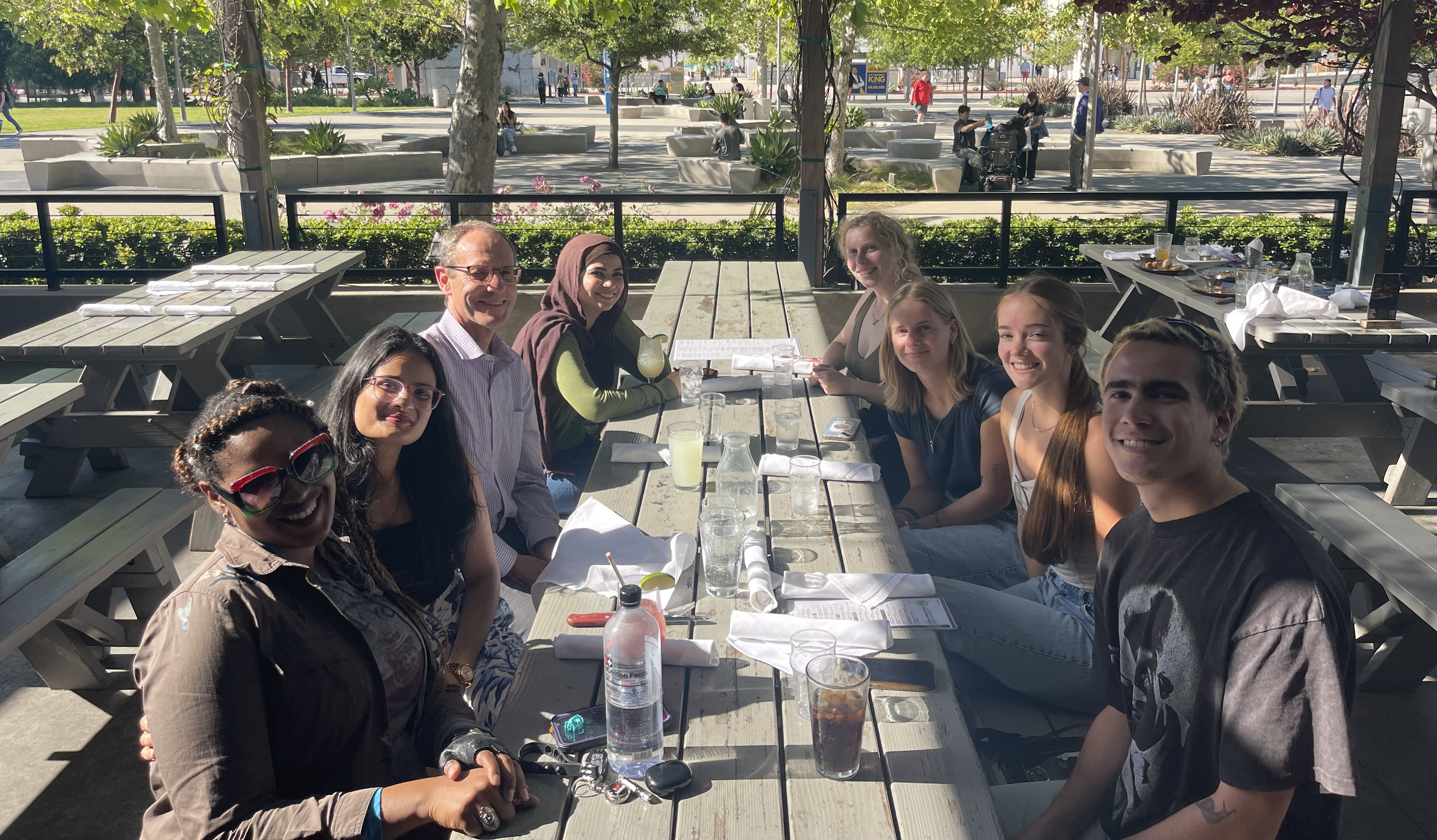 Celebrating the end of a productive 2024-2025 academic year, many accomplishments, and exciting next steps/future projects (e.g., graduate school, semester abroad, career opportunities, etc.).
Celebrating the end of a productive 2024-2025 academic year, many accomplishments, and exciting next steps/future projects (e.g., graduate school, semester abroad, career opportunities, etc.).
Spring 2025 Conference Presentations
 Three projects presented at the SDSU Student Symposium and at the annual meeting of the Western Psychological Association! Ashar Abdallah, Kelly Fleischer, Layla Maiocco, and Eric Romero examined the spatial clustering of lay definitions of the American identity. Lexi Koelzer, Zoe O’Hanlon, and Devanshi Upadhyaya investigated the spatial clustering of right-wing authoritarianism and social dominance orientation. Angelica Tharpe was the recipient of a Provost Award for her presentation on the relations between implicit bias and political participation among Asian Americans.
Three projects presented at the SDSU Student Symposium and at the annual meeting of the Western Psychological Association! Ashar Abdallah, Kelly Fleischer, Layla Maiocco, and Eric Romero examined the spatial clustering of lay definitions of the American identity. Lexi Koelzer, Zoe O’Hanlon, and Devanshi Upadhyaya investigated the spatial clustering of right-wing authoritarianism and social dominance orientation. Angelica Tharpe was the recipient of a Provost Award for her presentation on the relations between implicit bias and political participation among Asian Americans.
Who Is American? A Comprehensive Analysis (2007-2023)
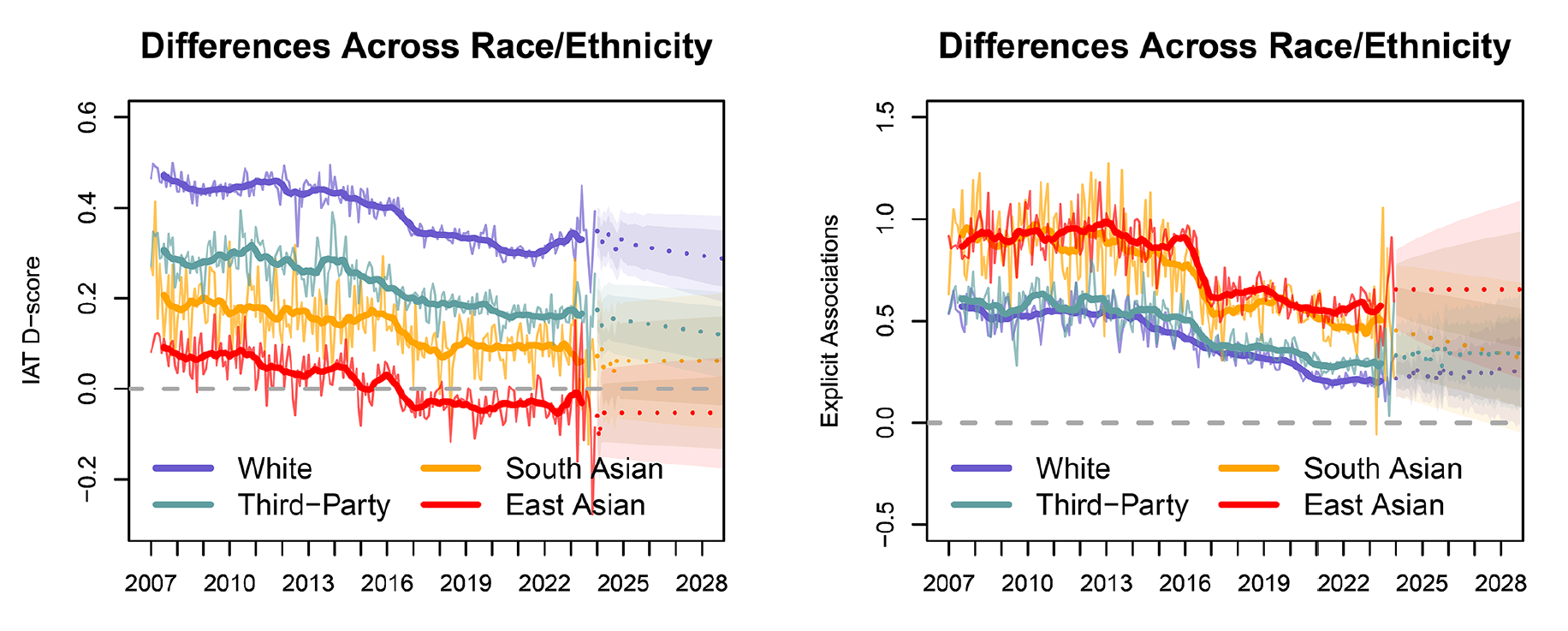
What demographic and contextual characteristics predict the American=White/Foreign=Asian stereotype? Did the “perpetual foreigner” stereotype decline over time? Did the COVID-19 pandemic have an impact on this bias? Check out empirical answers to these questions and more in a paper published in Scientific Reports (Open Access). An in-depth analysis of a massive dataset led by Kirsten Morehouse in collaboration with Tessa Charlesworth, Thierry Devos, and Mahzarin Banaji.
Spring 2024 Conference Presentations

 Another productive year with two student-led projects presented at the SDSU Student Symposium and at the annual meeting of the Western Psychological Association! Ashar Abdallah, James Peterson, and Angelica Tharpe explored the relations between the motivation to control prejudice and bias towards Arabs/Muslims (top picture). Devanshi Upadhyaya and Amarachi Duru documented cultural variations in implicit skin tone preferences across the globe (bottom picture).
Another productive year with two student-led projects presented at the SDSU Student Symposium and at the annual meeting of the Western Psychological Association! Ashar Abdallah, James Peterson, and Angelica Tharpe explored the relations between the motivation to control prejudice and bias towards Arabs/Muslims (top picture). Devanshi Upadhyaya and Amarachi Duru documented cultural variations in implicit skin tone preferences across the globe (bottom picture).
Spring 2023 Conference Presentations
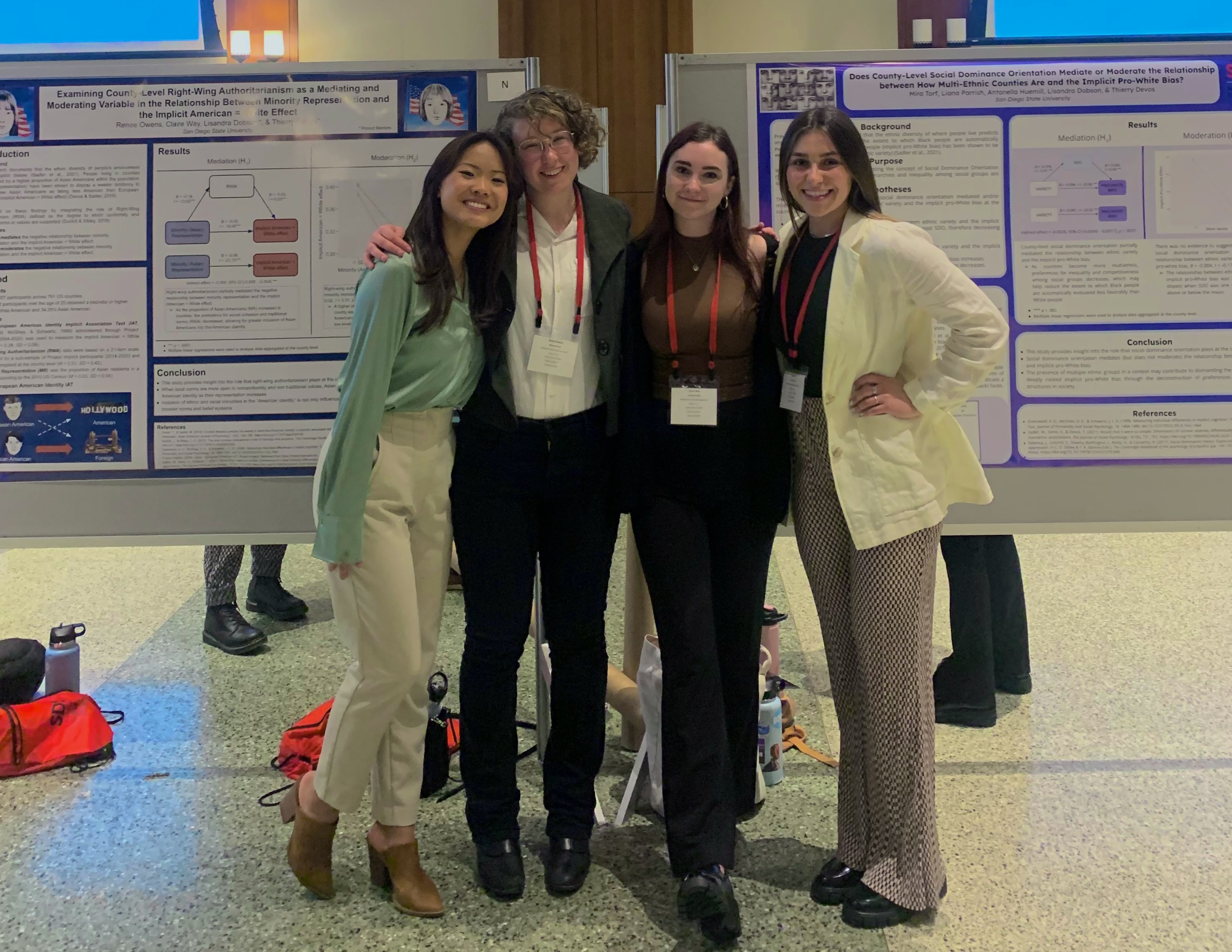
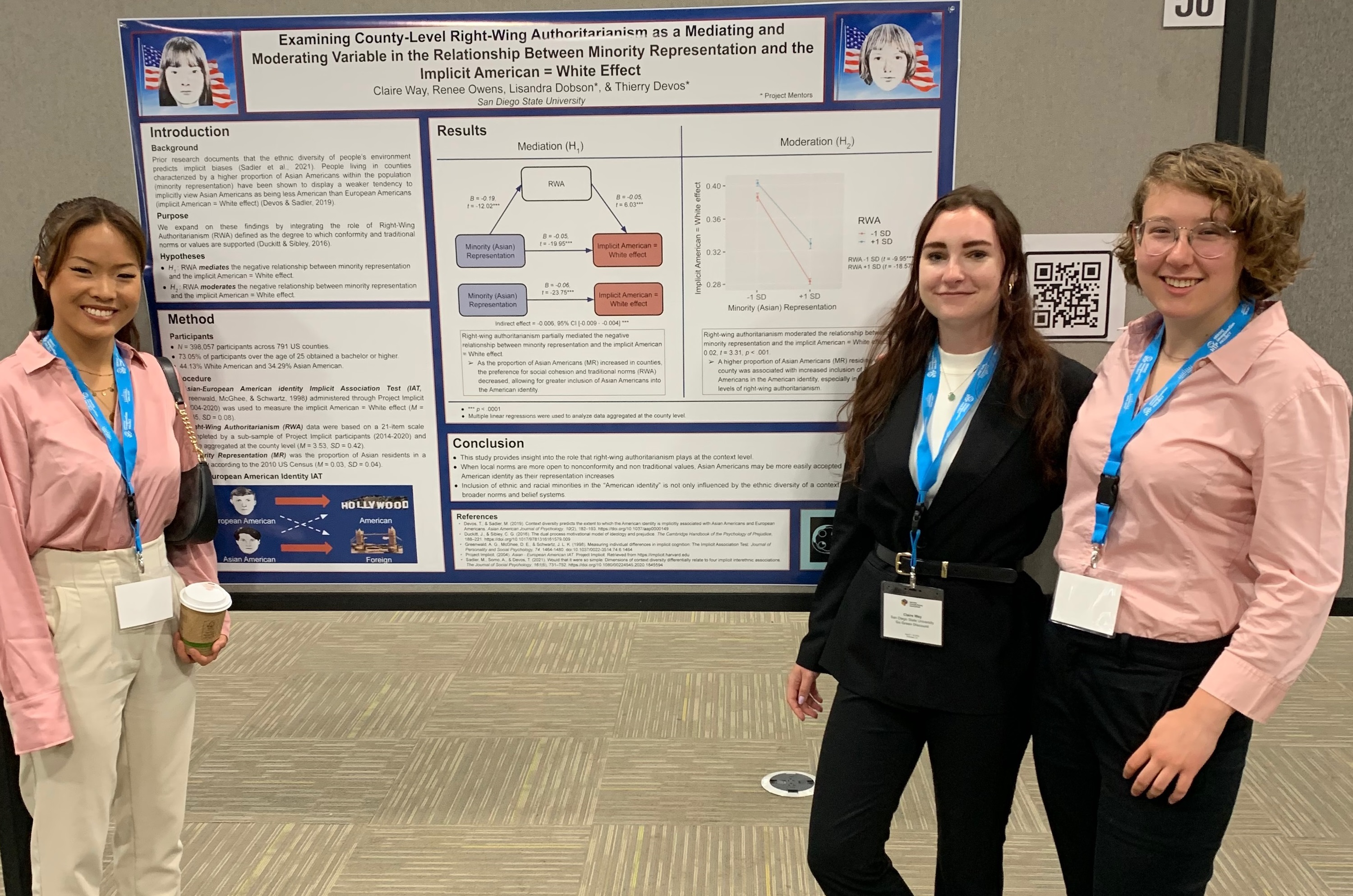
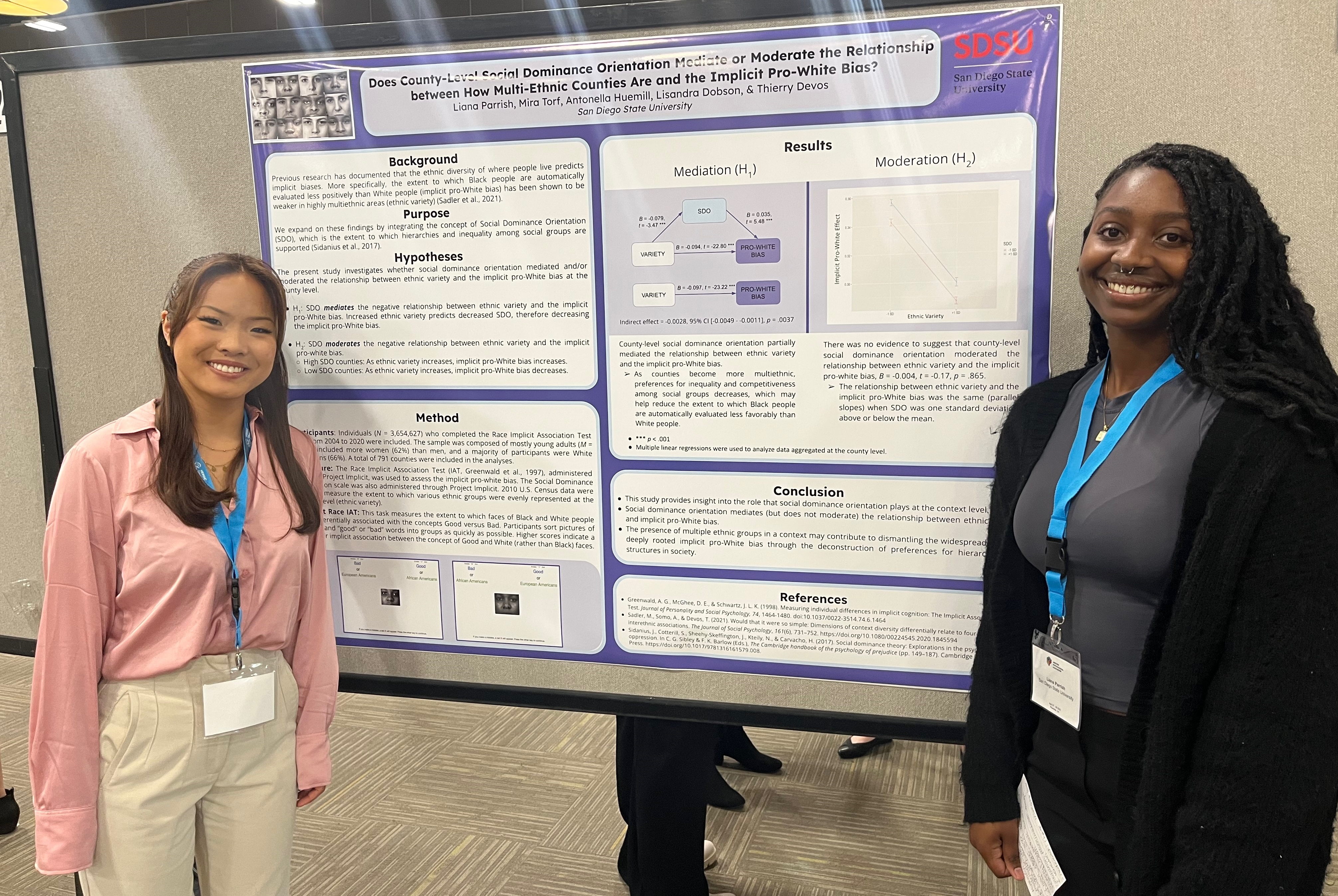 Two terrific student-led projects were presented at the SDSU Student Symposium (top picture) and at the annual convention of the Western Psychological Association (bottom pictures)! Claire Way and Renee Owens examined the relations between county-level right-wing authoritarianism and the implicit American = white effect (poster), while Liana Parrish, Mira Torf, and Antonella Huemil studied the relationships between county-level social dominance orientation and implicit pro-white attitudes (poster). Both projects were mentored by Lisandra Dobson.
Two terrific student-led projects were presented at the SDSU Student Symposium (top picture) and at the annual convention of the Western Psychological Association (bottom pictures)! Claire Way and Renee Owens examined the relations between county-level right-wing authoritarianism and the implicit American = white effect (poster), while Liana Parrish, Mira Torf, and Antonella Huemil studied the relationships between county-level social dominance orientation and implicit pro-white attitudes (poster). Both projects were mentored by Lisandra Dobson.
Nancy Moreno Recipient of 2022 Maslach - Zimbardo Research Award
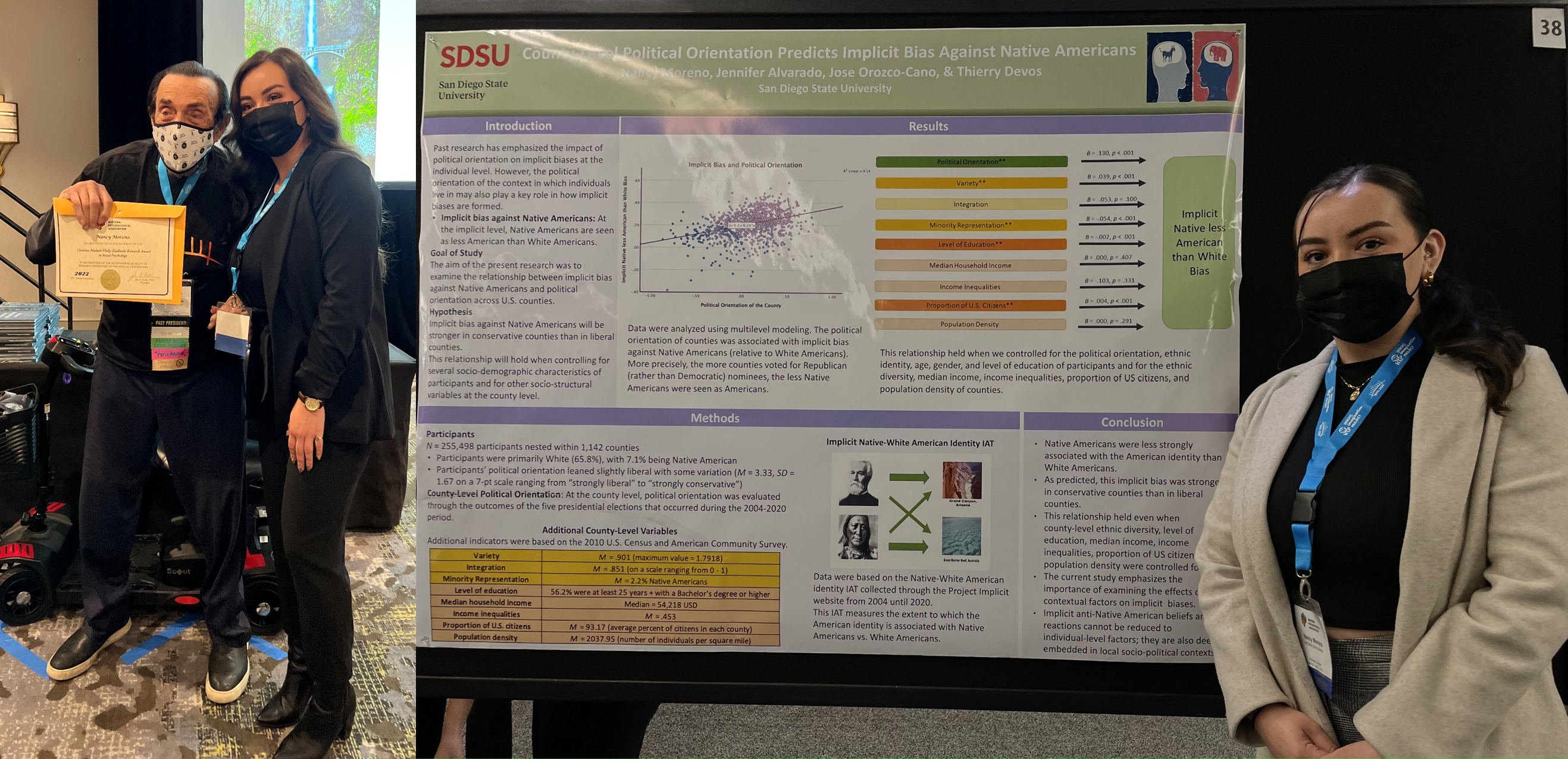
Congratulations Nancy for being the recepient of one of two 2022 WPA Christina Maslach - Philip Zimbardo Research Awards in Social Psychology for your presentation titled County-Level Political Orientation Predicts Implicit Bias against Native Americans !
Lab Members Present Research at SRS 2022
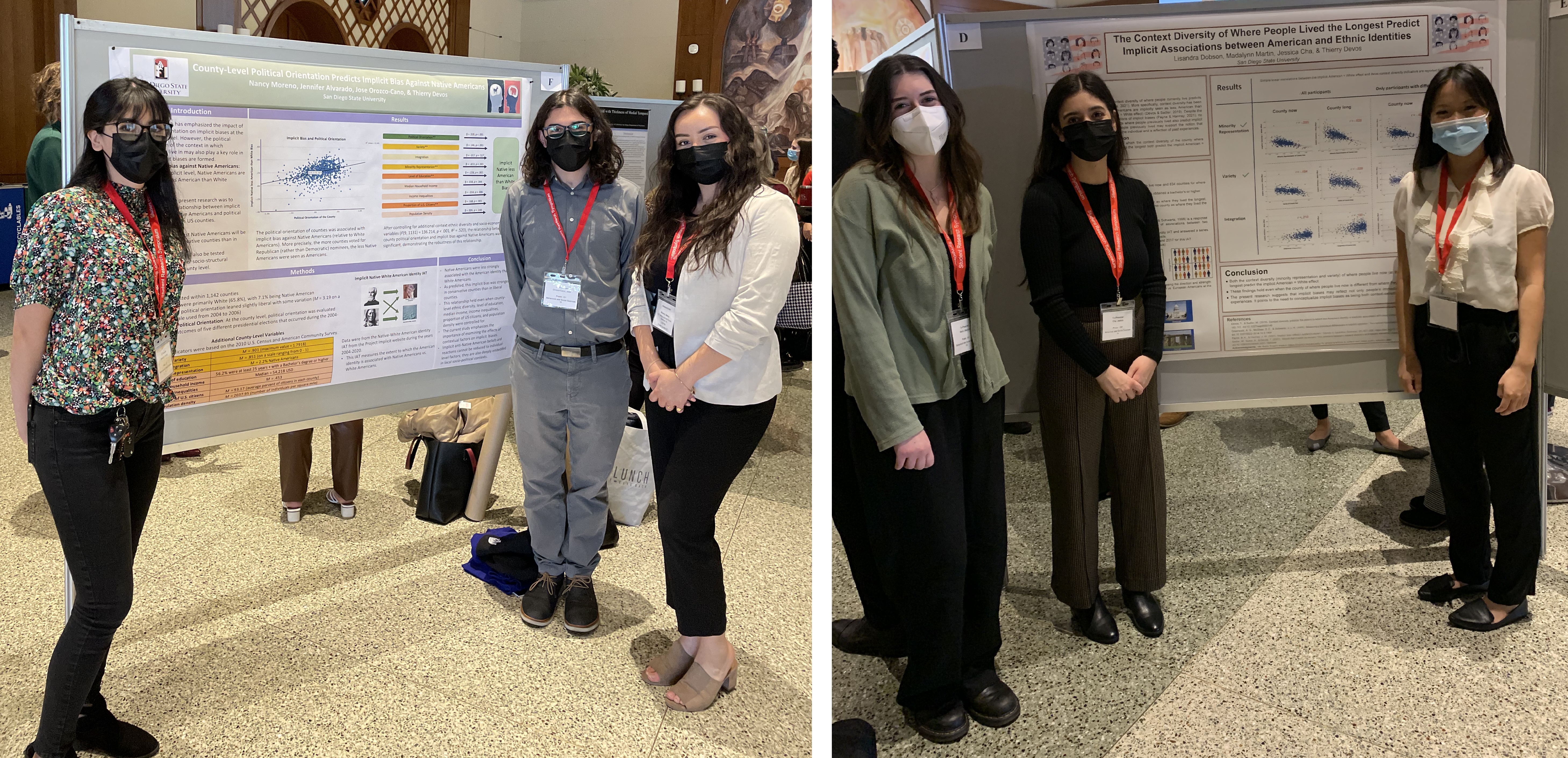
Two posters presented at the 2022 Student Research Symposium on campus! On the left, Jennifer Alvarado, Jose Orozco-Cano, and Nancy Moreno documented a robust relationship between the political orientation of counties and implicit bias against Native Americans. On the right, Madalynn Martin, Jessica Cha, and Lisandra Dobson showed that the American = White effect is predicted by the ethnic diversity of the county in which people lived the longest and currently live.
Henry Lopez Published Article based on Master’s Thesis
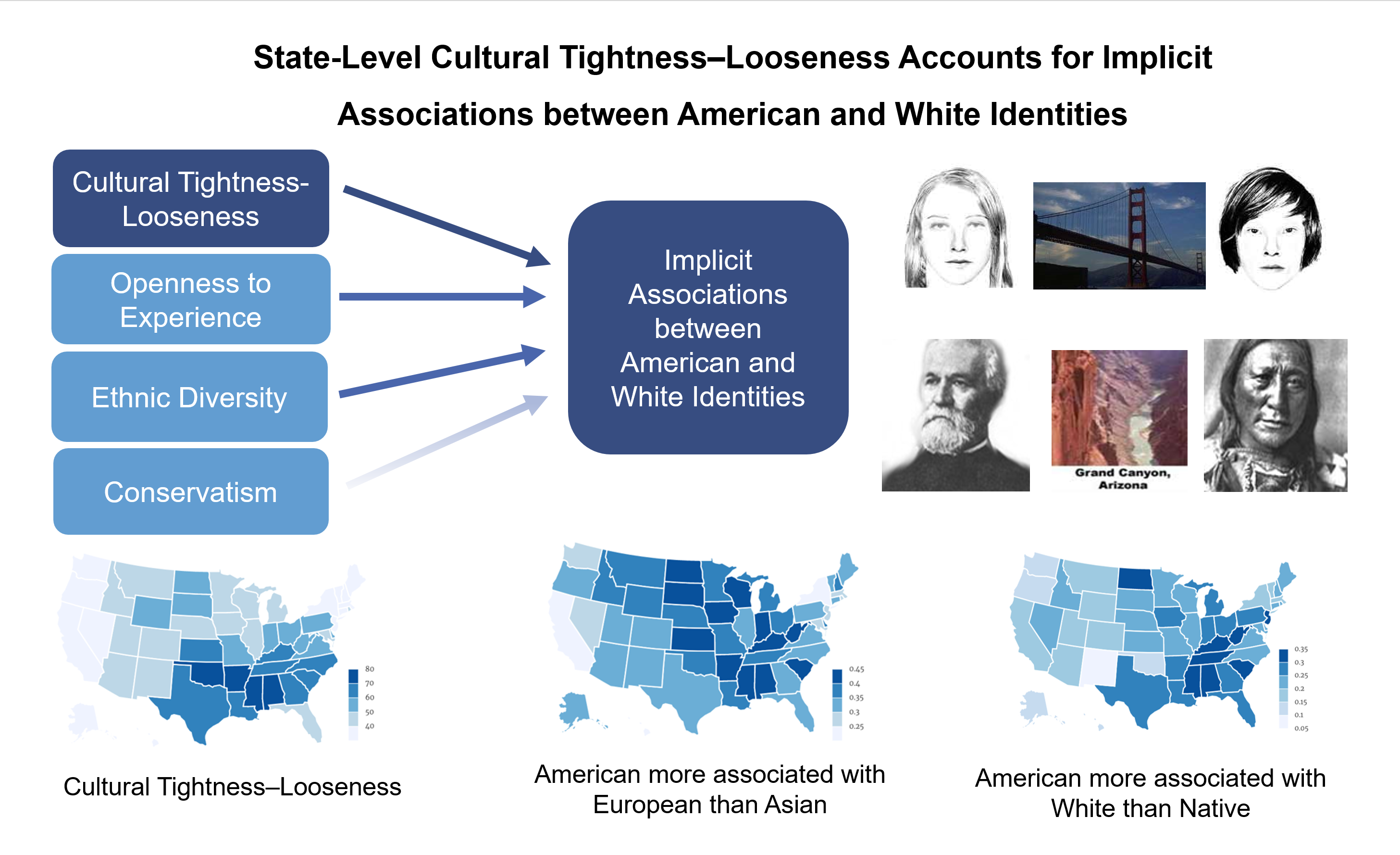
Congratulations Henry! In his master’s thesis, Henry Lopez showed that people living in tighter states displayed stronger implicit associations between the American and White identities compared to people living in looser states. This project led to a peer-reviewed article in Current Research in Ecological and Social Psychology. Henry is now pursuing his PhD in cultural psychology at Iowa State University.
Ezekiel Welsh 2021 Winner of the Parker Award for Outstanding Undergraduate Paper
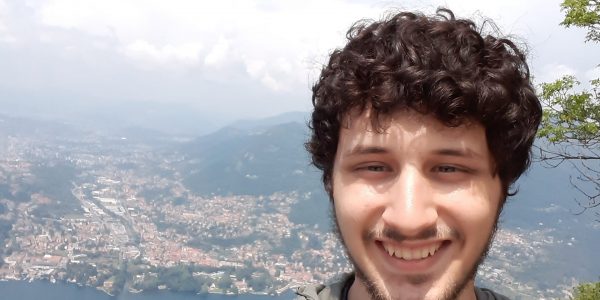
Congratulations Ezekiel! In his honors thesis, Ezekiel Welsh documented that individuals who live in more religiously diverse U.S. counties display more positive implicit attitudes towards Judaism and Islam.
Why Some Americans Seem More ‘American’ Than Others
 Dr. Katherine Kinzler discusses research on implicit assumptions about who is (or not) seen as a “real American”.
Dr. Katherine Kinzler discusses research on implicit assumptions about who is (or not) seen as a “real American”.
Lab Members Present Research at SRS 2020
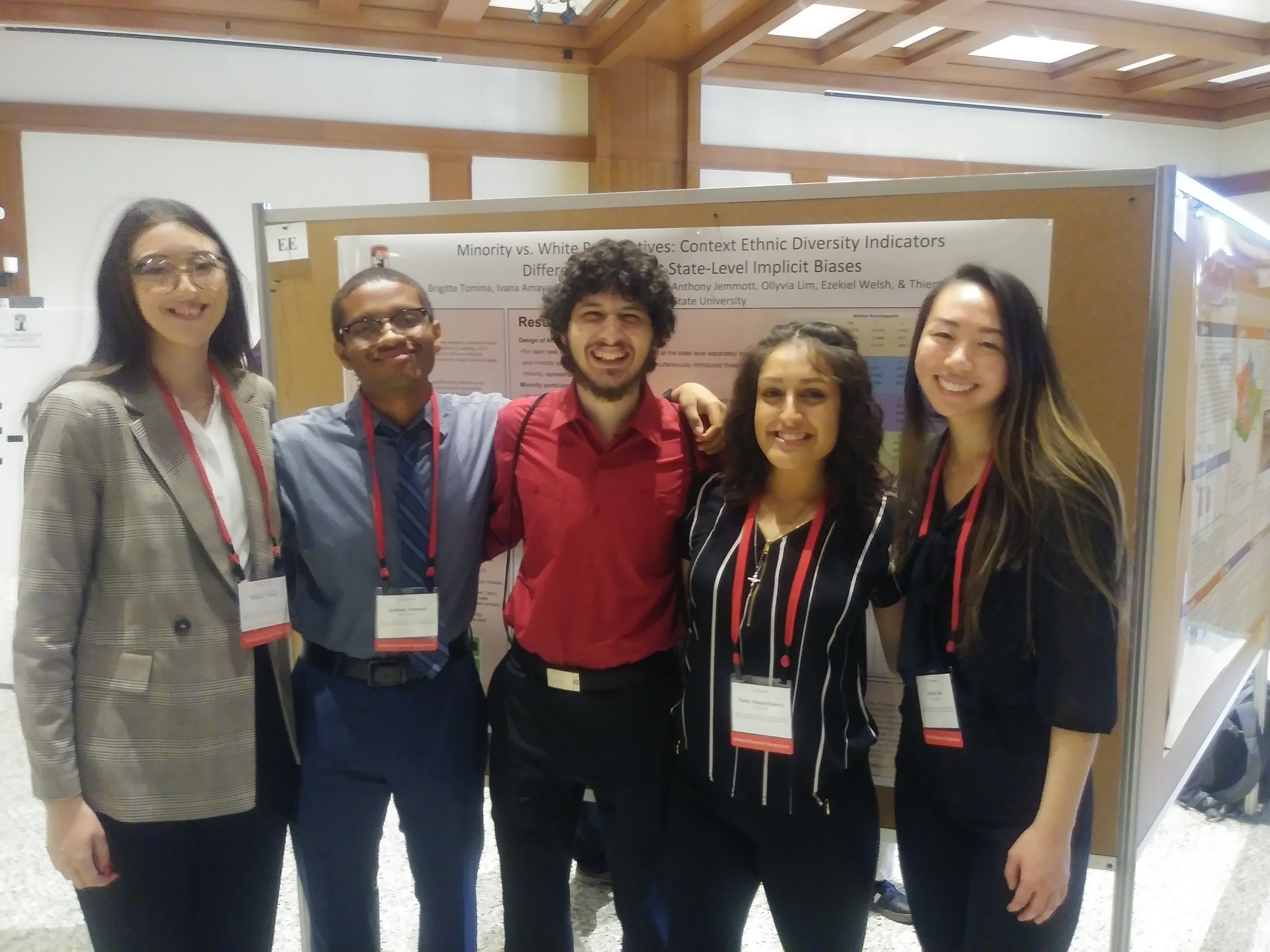
Brigitte Tomma, Anthony Jemmott, Ezekiel Welsh, Ivana Amaya-Guerra, Ollyvia Lim, and Lisandra Dobson (not in the picture) present research at the 2020 Student Research Symposium on campus. This research project examined the relations between context diversity and implicit bias from the perspective of both minority and majority group members.
Paige Denzler Presents Research at SPSP 2020
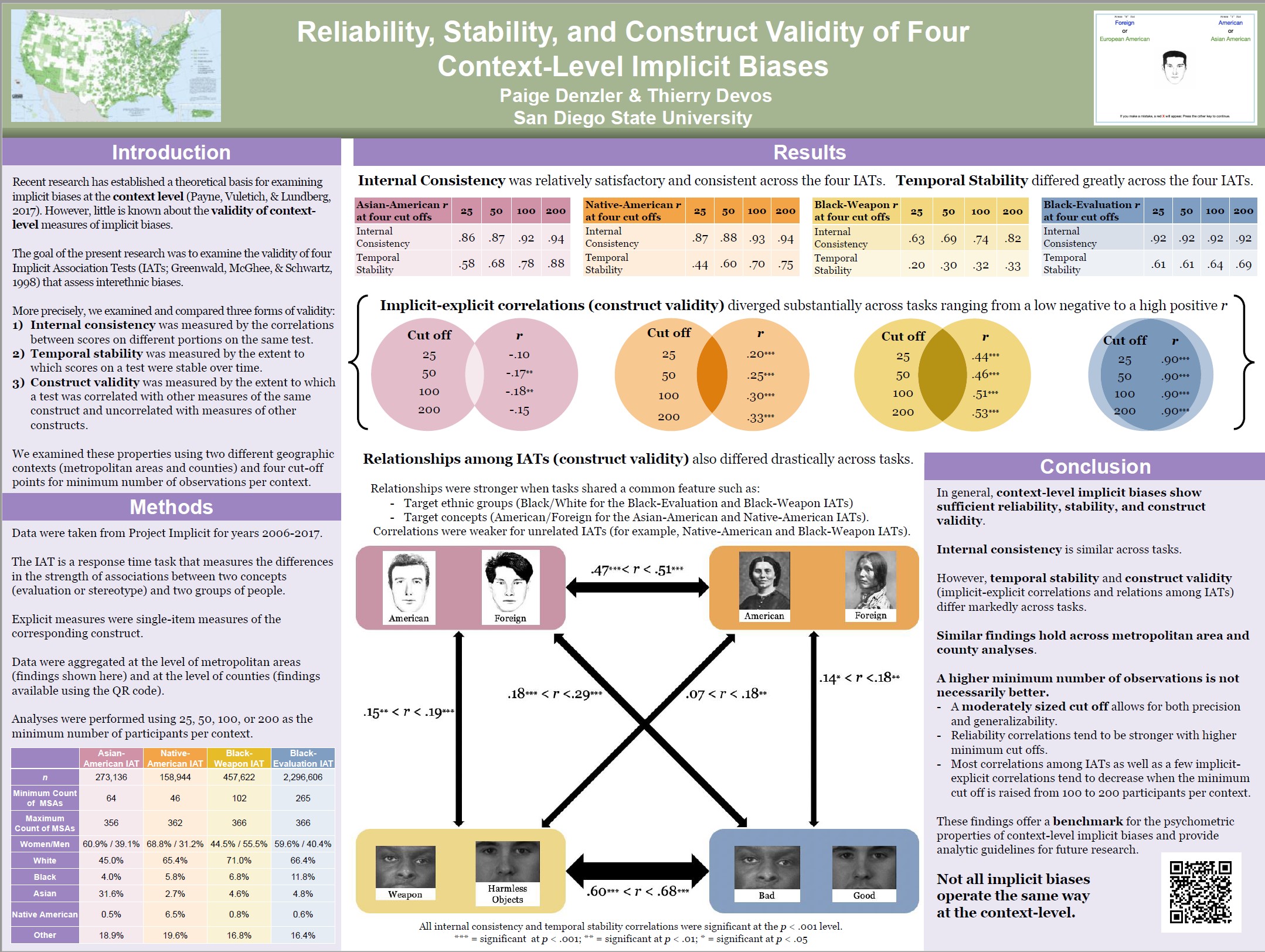
Paige Denzler presents a poster at the 2020 convention of the Society for Personality and Social Psychology in New Orleans, LA. This research project examined the reliability, stability, and construct validity of four context-level implicit biases.
What Shapes Our Idea of Who Can Be American?
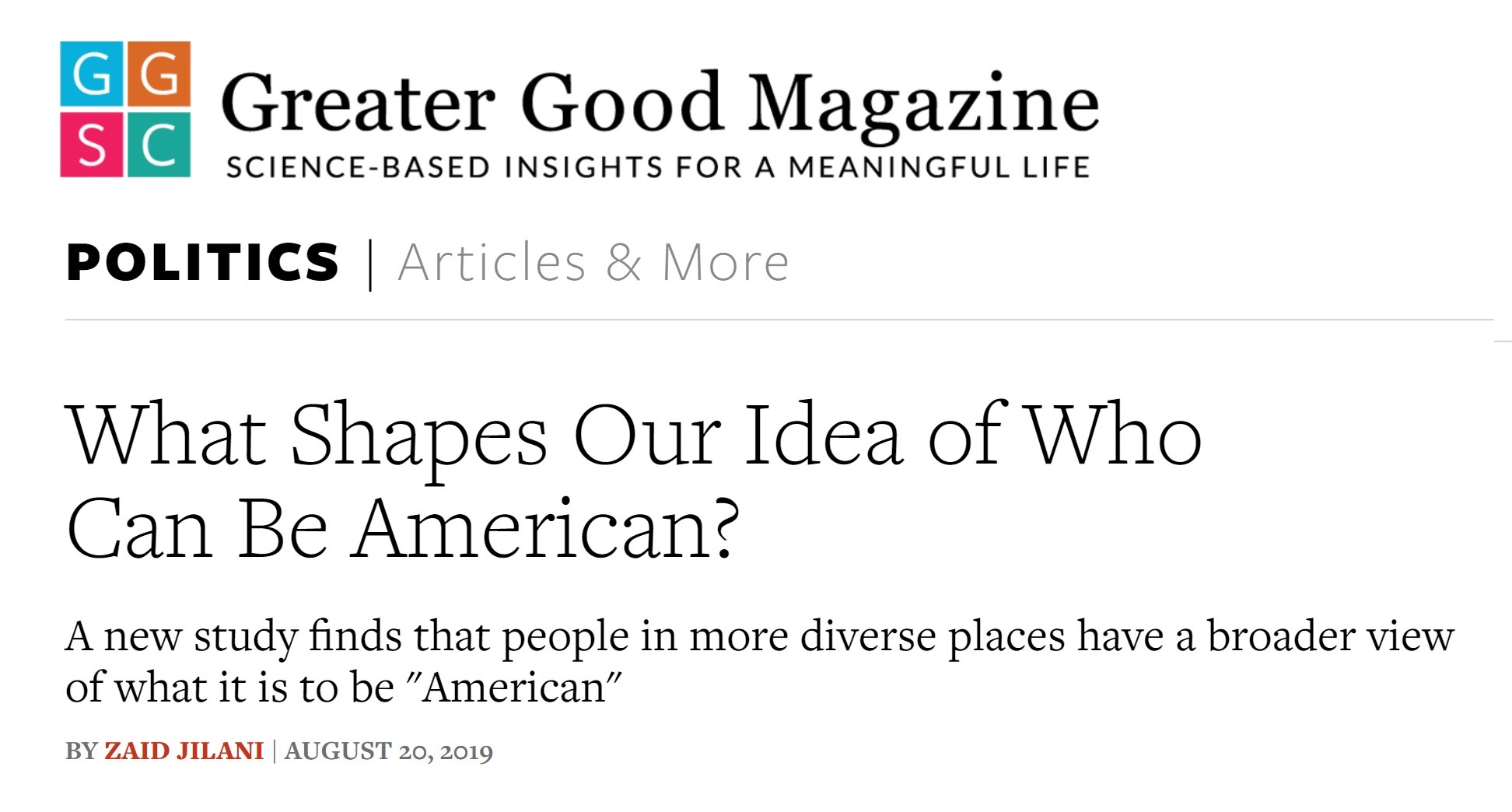
Zaid Jilani discusses findings showing that people living in more diverse places have a more inclusive view of what it means to be “American”.
Bailie Rivera Presents Research at WPA 2019
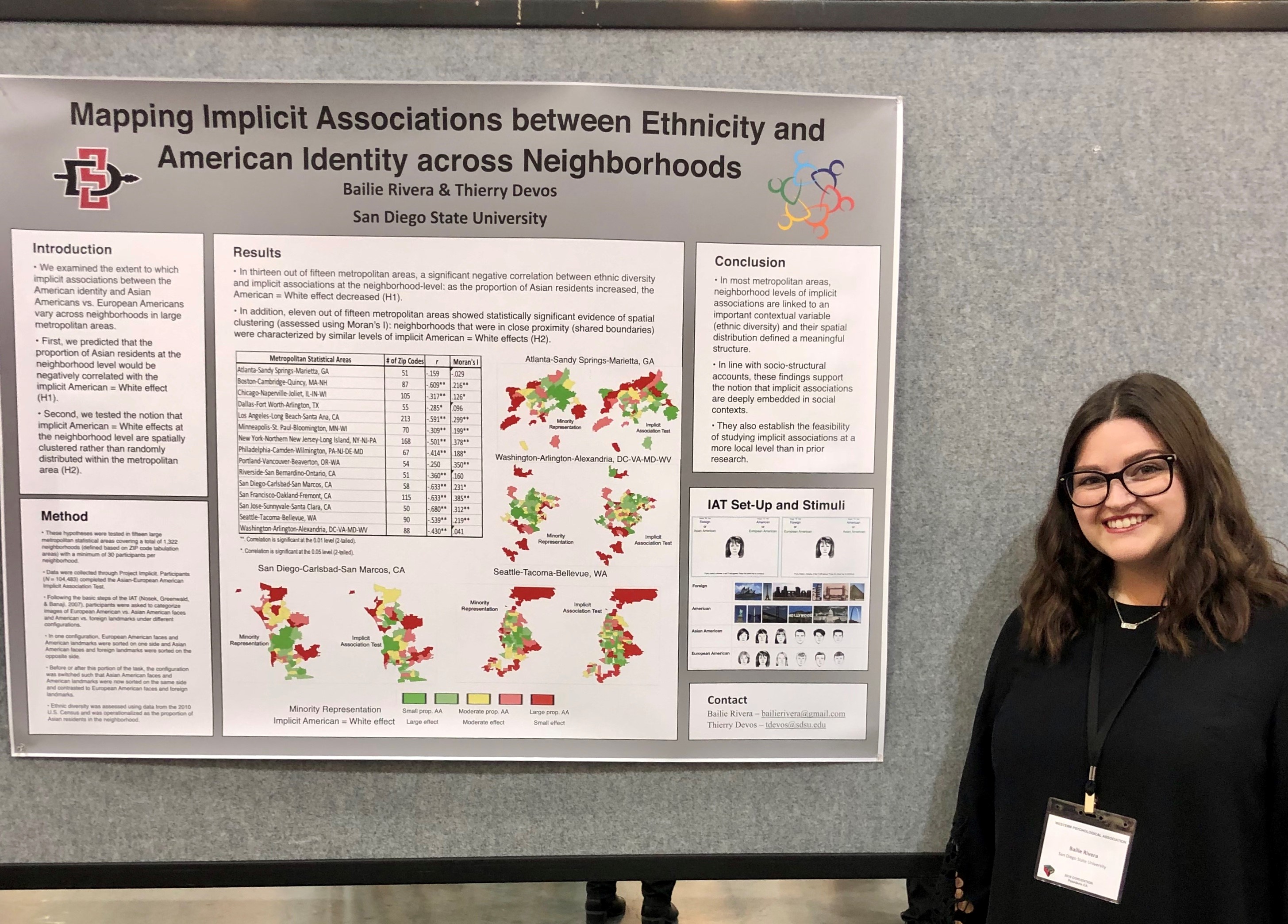
Bailie Rivera presents a poster at the 2018 convention of the Western Psychological Association in Pasadena, CA. This research project examined the spatial clustering of implicit bias in large metropolitan areas.
Lab Members Present Research at SRS 2019
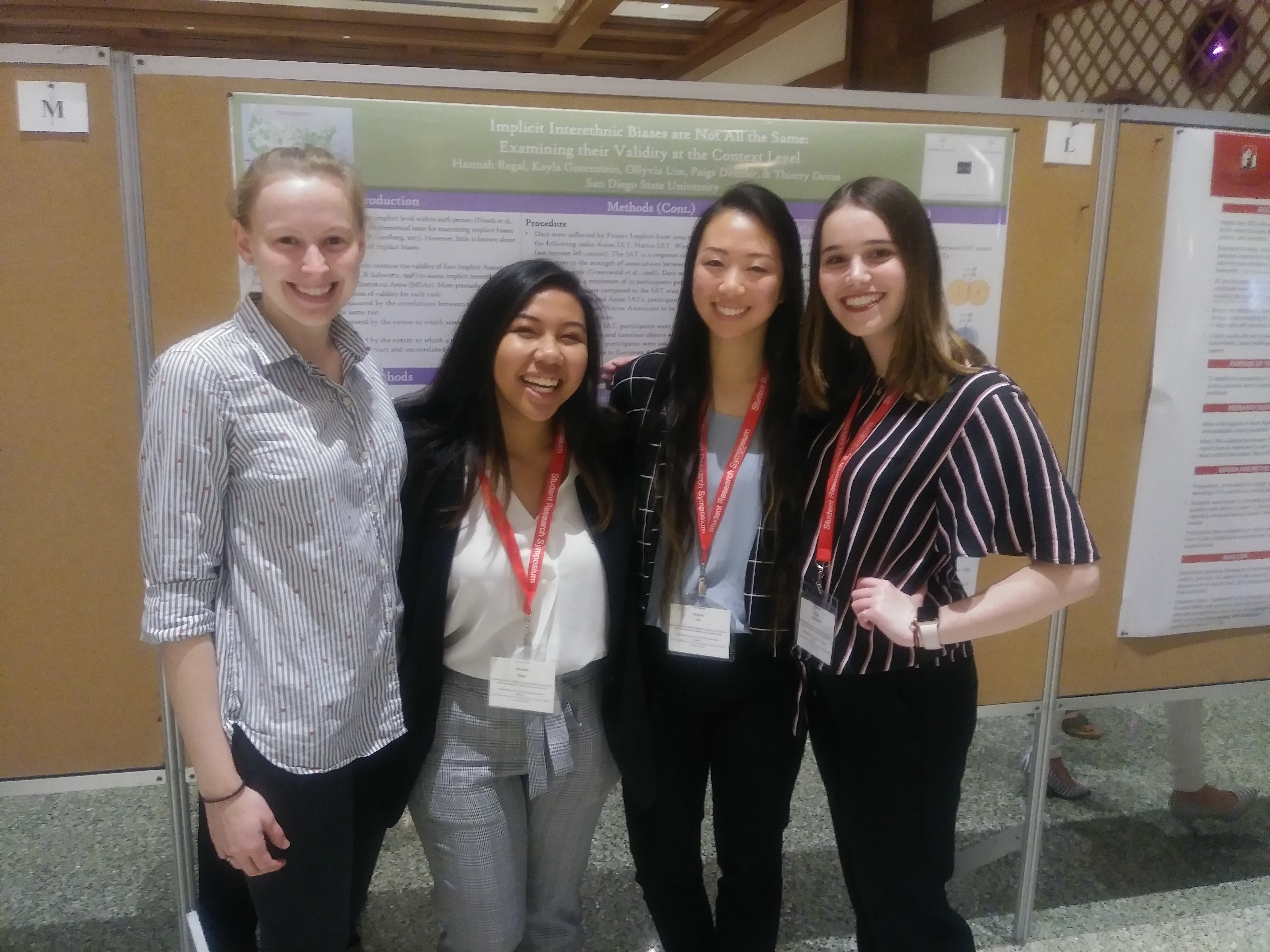
Paige Denzler, Hannah Rega, Ollyvia Lim, and Kayla Gorenstein present research at the 2019 Student Research Symposium on campus.
Who Should See ‘Crazy Rich Asians’

Dr. Dolly Chugh blogs about the significance of the movie “Crazy Rich Asians”.
David Perry 2018 Becky Award Winner
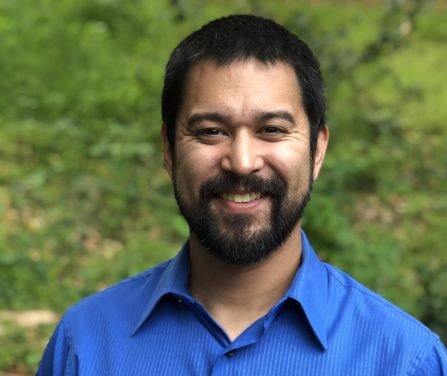
Congratulations David! In his master’s thesis, David Perry tested whether implicit ethnic perceptions may be related not just to the diversity of neighborhoods, but also to the diversity of schools within each neighborhood.
The Truest Form of Identity Politics Belongs to White America

Nareissa Smith discusses the implications of the conflation of whiteness and Americanness.
Birth of a Notion: Implicit Social Cognition and the “Birther” Movement
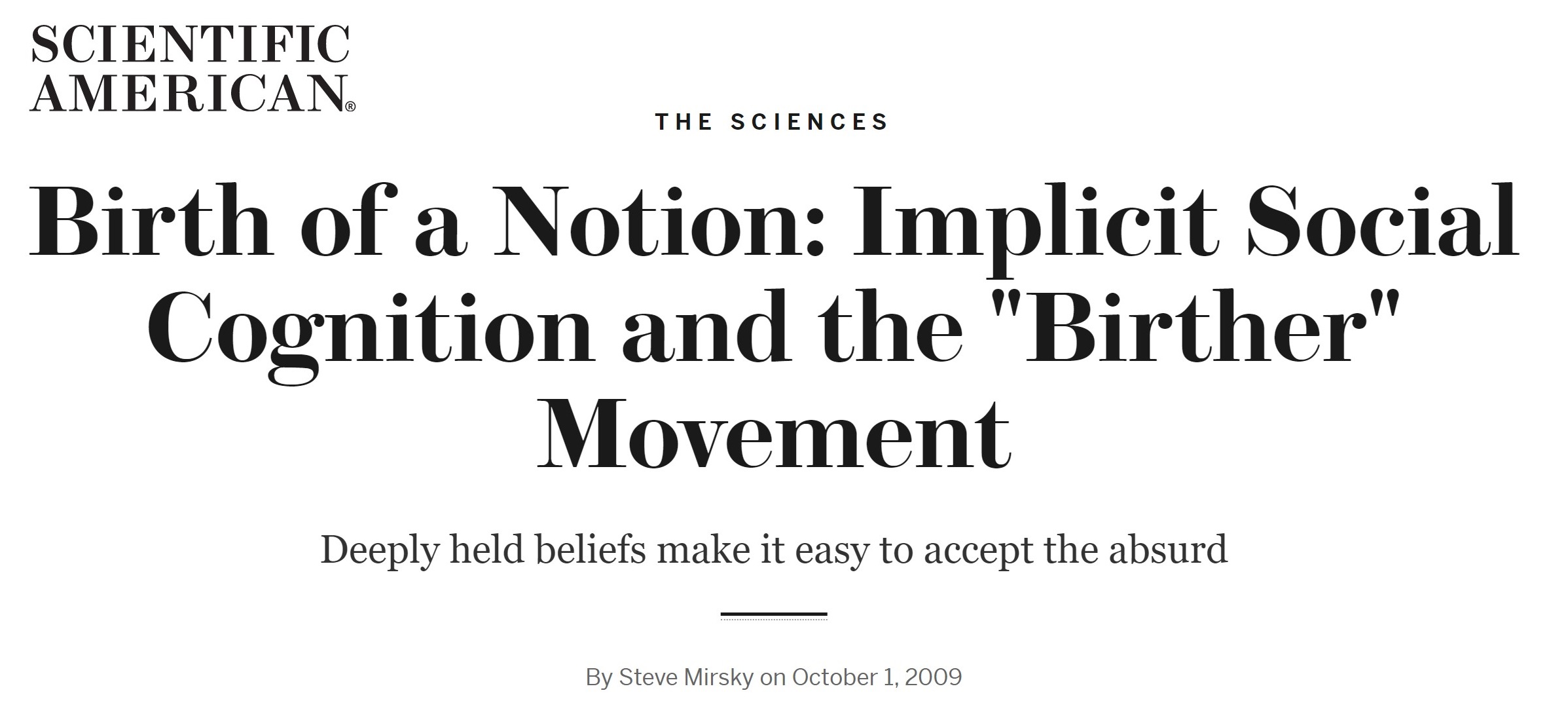
Steve Mirsky considers the birther movement in light of research on implicit Americanness.
Does Your Subconscious Think Obama Is Foreign?
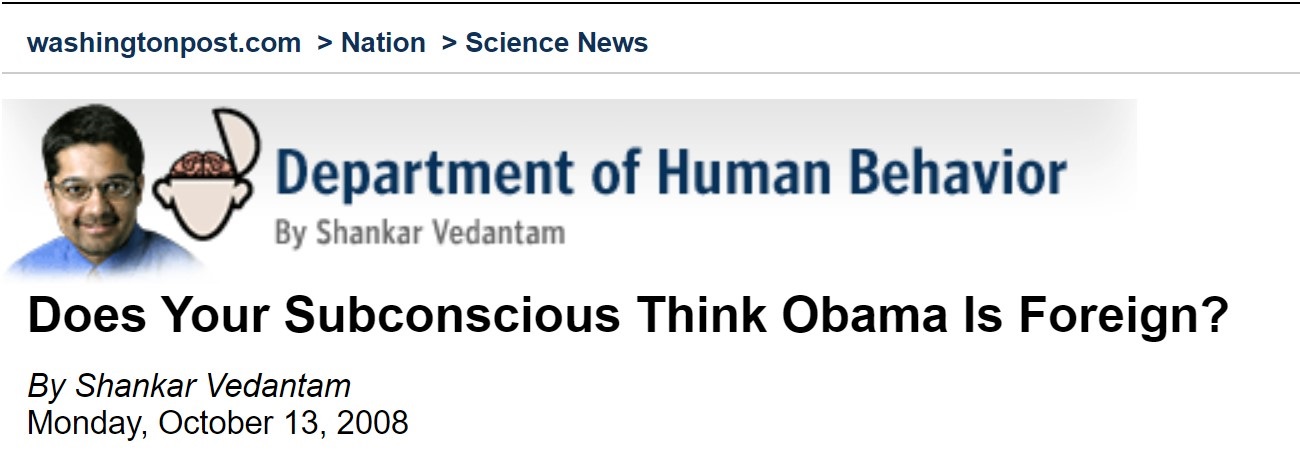
Shankar Vedantam discusses research on the American = White effect in the context of the 2008 Presidential election.